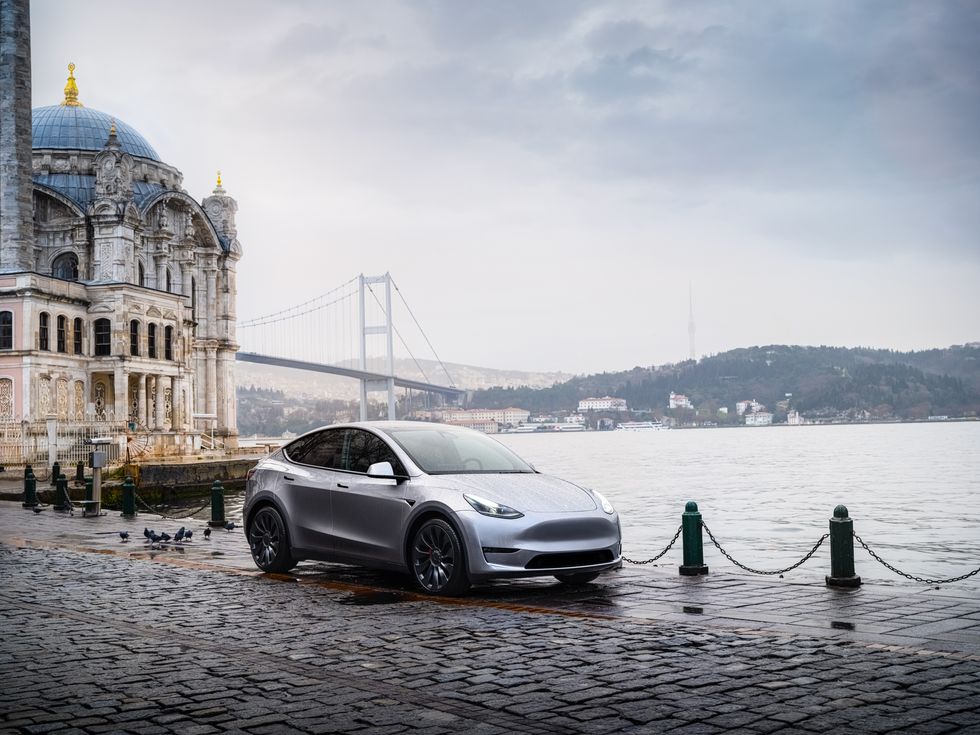Drivers are being warned of car tax changes set to launch next year which will see costs rise for thousands and potentially even millions of drivers.
Historically, car taxes have risen in line with inflation, as happened in April this year. However, new rules will be introduced next year to see a new group of motorists charged to use the roads.
From April 1, 2025, owners of electric cars and other zero emission vehicles will be required to pay tax in the same way as drivers of petrol and diesel vehicles.
The new rules will apply to cars, vans and motorcycles that do not emit any harmful emissions, as they are currently exempt from paying Vehicle Excise Duty (VED).
Do you have a story you’d like to share? Get in touch by emailingmotoring@gbnews.uk
Electric car owners will have to start paying VED from April 2025
REUTERS
Changes will also apply to all vehicles in these categories, including ones that are already registered and those that are purchased after the April 1 deadline.
Any zero emission vehicle that is registered on or after April 1, 2025, will need to pay the lowest first-year rate of vehicle tax, which applies to vehicles with CO2 emissions between one and 50g/km.
From the second tax payment onwards, they will need to pay the standard rate, which is currently £190 for 2024, but is expected to change for 2025.
Electric and low emission cars registered between April 1, 2017, and March 31, 2025, will pay the standard rate currently set at £190.
Any vehicles registered between March 31, 2017, and March 1, 2001, will move to the first band that has a VED value which is £20 this year, but is subject to change in April.
Most electric vans will move to the standard annual rate for light goods vehicles, with electric motorcycles and tricycles moving to the annual rate for the smallest engine size.
These rules were first outlined by then-Chancellor Jeremy Hunt in the 2022 Autumn Statement when he announced that the tax system should “continue to adapt to reflect consumer behaviour”.
He added: “Reflecting the success of the transition to electric vehicles, the government will therefore introduce Vehicle Excise Duty on electric cars, vans and motorcycles from April 2025. This will ensure that all motorists begin to pay a fairer tax contribution.”
During the same announcement, the Government set Company Car Tax (CCT) rates for drivers to ensure that electric vehicles continue to be an attractive solution for motorists.
At the start of the new tax year, motorists may also be liable to pay the additional rate – also known as the Expensive Car Supplement.
This will impact owners of electric vehicles which have a list price of more than £40,000 if their EV is registered on or after April 1, 2025.
Many electric vehicles on the market have a list price of over £40,000, especially some models from more popular brands like Tesla, BMW and Mercedes-Benz.
LATEST DEVELOPMENTS:

The Tesla Model Y would attract extra charges through the Expensive Car Supplement
TESLA
Other alternatively fuelled vehicles (AFVs) will see the £10 annual discount removed and they will need to be registered depending on when the vehicle was manufactured.
If it was registered before April 1, 2017, it would depend on the vehicle’s CO2 emissions, while vehicles registered on or after that date would have to pay the standard rate, which is currently set at £190.

